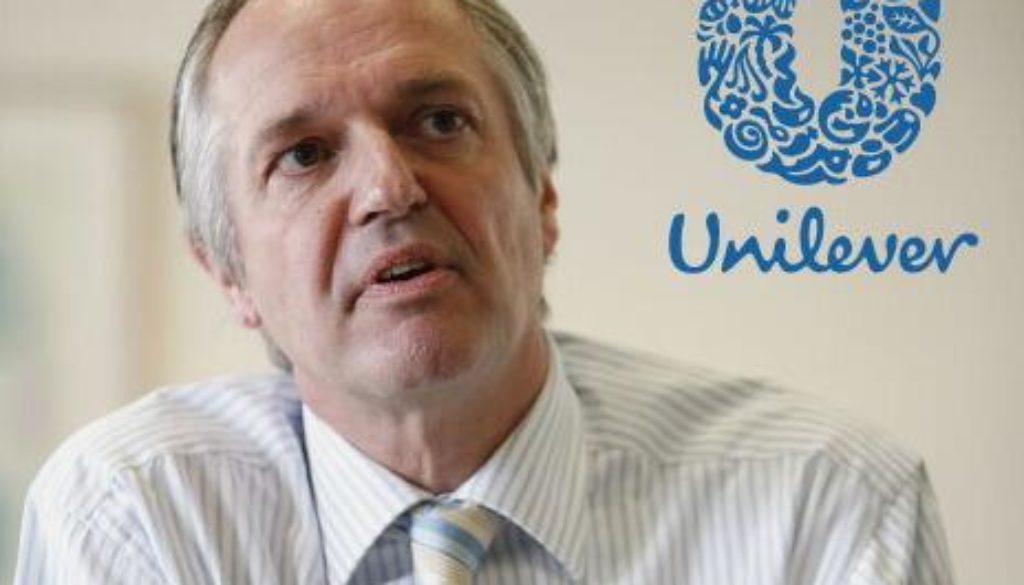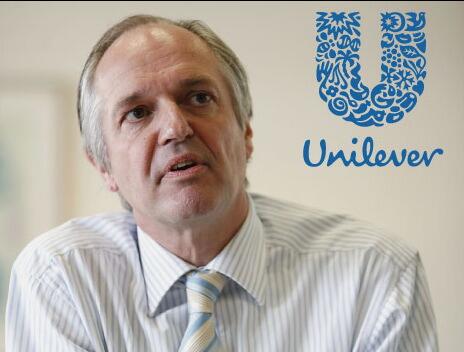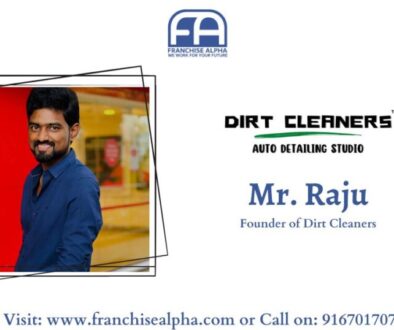India will become more attractive to global companies for investments: Paul Polman, CEO,Unilever
Unilever, the world’s fourth-largest consumer goods company, remains upbeat on India’s growth relative to the US, its biggest region. In an interview to Sagar Malviya and R Sriram , CEO Paul Polman said the group has continued to invest in Hindustan Unilever BSE -0.10 % (HUL) by growing business and introducing new brands, (HUL) by growing business and introducing new brands, and will continue to do so. HUL contributes about 9 per cent, or 4.5 billion euros, to the Anglo-Dutch company’s overall sales, compared with 15 per cent, or about 7.5 billion euros, for the US.
On India business
I would love to have an economy of your size, growing at 5-6%. Anybody would like to have that trajectory. At HUL (Hindustan Unilever), we have doubled our business in about seven-eight years. We have created an HUL in the last eight years… what took us a hundred years to create.
On GST, demonetisation
I don’t want to get into politics, but what the Indian prime minister is trying to do has two things — it has big ideas, Smart India, Made in India, Swachh Bharat. These are big statements and he can only hold himself accountable and he sets the bar higher for himself. So the question is how quickly can he get the whole country with him. But the essence of what you are trying to do with some initiatives is right and to the benefit of the economy. We are supportive of many of these initiatives because if it’s beneficial to India, it will be beneficial to HUL as well.
You take the GST (Goods and Services Tax), where you can do better logistics, sourcing, supply chain, which is going to be a tremendous advantage where all of the people will have to play in the real economy and you don’t get free riders anymore. We know it was a problem in many economies. Here, you see a country that is changing in a substantial way. India was underperforming versus its potential and the answers were in-house and not somewhere else. India is in charge of its own destiny. You will become increasingly more attractive to global companies for investments.
We have a very high investment rate in India with our new product programmes, our acquisition programmes and our investment in the core business. In terms of innovation, in the last 12 months, we probably had about 30-35 major innovations in all our categories. This is a sign of confidence of how we think this economy is going to be.
Is India critical to global margin guidance?
Our margins in 2016 (globally) as a company were 16.4% and we had flagged to the market that will go up 80 basis points a year, which is the return on the investments that we make with a shift in a portfolio, M&A, and all that comes together. We told the market that by 2020 our margin would be around 20%. I would not have put out a target for 2020 just like that… I come from a part of the Netherlands where we keep our head low and we deliver.
We would just deliver the numbers and then everybody can look at the numbers and decide what the company is worth. What I have always felt is that we should change the way business is being done. We need to get out of quarterly reporting because we don’t solve the world based on just three months. We need to get out of these managing of expectations and move the world back to the real economy.
We put the target out as an indicative target because there is a group of shareholders that say they are not buying Unilever right now, but if they get some more clarity, they would buy. The share price going up means more people want your shares, it’s supply and demand. We have seen a significant increase in shareholding by our shareholders because of our business model.
HUL is a great example. We have continued to invest in HUL by growing our business, doubling our business, introducing new brands and we will continue to do that. We have had 35 innovations last year. We were going over the plans of the company in the next 12 months, I have never seen them so strong.
We will continue to invest in them and that is how our top line and bottom line go hand in hand. By the way, it’s important that they go hand in hand, it’s easy to grow and not earn money. Growth is important but so is profitability, that shows you are innovative, you are bringing added value to the market. When I was the CFO of Nestle, I did a study once where I looked at 1,000 public limited companies, and there were only 8% of them that had 10 years of both top and bottom-line growth.
We are now in our 10th year of top and bottom-line growth. It gives you stability with your employees, it gives you consistency in execution of strategy. It doesn’t get into big restructuring programmes and all the things that bring with it. We consistently run the business, managing both growth and profitability and that is serving us well.
On Patanjali
I would correct one thing, which is that the challenge we have sometimes as a company, because we are a very big company, we have many opportunities. The fact that HUL has doubled over the last eight years is because we made some choices and did very well. We are by far No. 1in personal care and most of the other categories… But at the end of the day, we have doubled the business.
We are continuously outgrowing the market and we obviously see the importance of Ayurveda in the Indian context. But if you have a 1.3-billion base, you can find the right balance to your competitive advantage. I also believe in the principle that it is better to be right first than to be first. So, we spent some time in doing that, not reacting. That’s not the way to do a business.
To create something like Lever Ayush, that is unique, that has added value, that is 100% real. We are launching it nationally now and that is again clearly another big opportunity for growth in the Indian market.
On losing oral care share
Oral care is a big category. If you take America out, we are globally no. 2 in the oral care category. We happen to be out of the America oral care market. So, oral care for us is very important. It’s more important than people think. In some point of history, we might not have had that vision. Because we were very decentralised. We found that we were no. 1in male grooming and we were no. 1in male grooming and we were no. 2 in oral care. Now we look at it more interdependently, we are growing fast.
If I may give you the last six months as an indicator, we have grown faster in oral care than Colgate or P&G in the published numbers. We were over 6 per cent and Colgate was slightly down. It’s not a small business. And not a lower base. Because you are no. 2 or 3 in the market. The base is big.
We have launched Zendium in many countries which has a natural defence system and the toothpaste is doing very well. We have upgraded our brands to the more premium segment.
Admittedly, of all the brands we have in India, our oral care business has suffered more and has been more under pressure than all the other categories we are in. I actually think it is good from time to time that there is a category in which you do not grow. It keeps us on a path to growth and brings humility and modesty. I am not worried about it and I am sure we are figuring out how to fix it.
Online sales channel
Globally, we don’t know how big e-commerce is going to be. Nobody knew how big Amazon was going to be. So, it’s difficult to estimate it. But we are in the trajectory to make it a 5 billion euro business globally in e-commerce. E-commerce today is about 3% of our business globally. Our growth rates in e-commerce are higher than the growth rate of e-commerce globally.
Our business is growing 30-40% globally in e-commerce. If I have to be 100% honest, 80% of our products would have higher shares on e-commerce than conventional channels. We are spending a lot of time on that. It’s changing so fast and changing consumer habits so fast. It has also changed the parameters of the cost of entry or building brands.
We need to be constantly on our feet. We have about a thousand people working on it in the company. One of the reasons we bought Dollar Shave Club was because the entire brand is focussed on the consumers and is bringing a lot of knowledge in the company. We acquire that knowledge here as well. We are investing in it quite hard. So, it’s an area where we are competitive.
Also, if you talk to the Jack Mas of the world they would mention Unilever amongst the top five companies that they would like to work with. Likewise, we are also helping the distributors here to stay competitive.
HUL has obviously a very deep distribution and has a very broad portfolio which can upgrade the distribution which is very important for the country. There is an opportunity that coexists and we will invest in them in the longer term to upgrade skills, technologies and more sophistication.
On food business
On foods, again someone may have built a sizeable food business. But foods is a bit of a two-edged sword. You can get turnover quickly but are you really building value? I am not saying they are not but I am saying you have to be careful.
We are in the value-added branded business. Under that basis, the food market in India is relatively small. And there are a limited number of branded quality food. You go into Reliance supermarket and you see all the products but that is not the reflection of India. So, we have our Kissan brand, the no. 1brand in ketchups, and Jams. And we have strengthened that brand significantly since that was acquired by Unilever. We have no. 1position in tea if you call that food and beverages.
Bru is no. 1 in coffee. One of our competitors said that they want to re-take the no. 1spot, you cannot get a better compliment than that. And then, we have the ice-cream business, which is growing very fast.
Magnum is doing very well for us. And then we have the Knorr range of soups, meal makers and soupy noodles. Our food business is a sizeable business by any standard. Our tea business is on fire like you won’t believe it. Our ice-cream business is doing very well here. And our Kissan business is a very strong franchise. But if your question is if there is huge potential in foods, we would 100% agree with it.
Can his successor be an Indian?
No question in our mind that HUL is the best training school in the world, not just Unilever. And it gets recognised for that and you have great examples here. We have many Indians in other parts of the company. So, by the law of numbers, there will be Indian CEO in one point in time, we have so much talent. We don’t think about it differently. Among my top 18 people that report to me there are five Indians.
Employee choice — Unilever or tech startups ?
People are joining Amazon or Uber or Google. These companies are also, by the way, trying to recruit from us and there are many examples. Interestingly, what we found was we have almost as many people coming in from Googles and Facebooks as mid-career recruits as had left for Google and Facebook.
The reality is that grass is not all that green on the other side. We are a successful company, so we get enough talented people in terms of applying. I am sure there are some people in India who would aspire to work for Amazon or Google but (we) certainly don’t have a shortage of people who apply to HUL.
On sustainability
We were in one of the slums yesterday in Mumbai, in Ghatkopar where we have built a hygiene centre named Suvidha. We have spent about 100,000-150,000 euros. You can put them into the pockets of your shareholders and your share price might go up in very short term. But we built this and we redefined the hygiene standards for the people who live there by providing basic facilities.
For us, that is more important to do than to worry about how many Lifebuoy soaps we are selling in the slums. Because we know if we do these things well, our business in the long term will our business in the long term will do well. But there are very few people who think this way.
On political polarisation
People are having a hard time seeing things holistically or accepting other views. US now is an example of that polarisation. In UK, it comes with an angst that translates into aggression.
The way technology is being adopted has something to do with that as well. The real risk is that people exploit this populism the wrong way, which is what you now see happening across the world. We now have many countries and situations where people elect leaders who are actually making the situation worse. It’s easy to jump on those things with short-term promises and solutions but all of a sudden, you take racial tension or acceptance of foreigners in the US.
You might think it’s surprising now but even if you go as a European there, you are being made to feel like a foreigner. What is driven into this society, even in the UK now, is not healthy. And the solutions that these people fought for are more driven by escapes from current status quo and populism manipulates it very smartly. If I run a company like this, we would be bankrupt. But somehow in politics, we have allowed this to happen.
On takeover bid by Kraft-Heinz
These people come in and say I want to make an offer for your company because now you have a few people who have billions in their personal accounts, banks that have more money and they do not know what to do with it. There is a lot of money in the world that is earning zero interest rate. You have never been in that situation. They see an opportunity to financially leverage to manipulate and make more billionaires out of them and they make an offer for your company.
You can’t get emotional about it, it’s a legal thing. But it’s the reality of our current system. Now it came at a very opportune time, because the pound was weak, because of Brexit, American companies had high PEs because of Make America Great Again.
We are an emerging market company, so we were under pressure there because Trump was going to renegotiate every trade deal in the world with everybody, where obviously the emerging markets were being seen as less attractive by the financial marker, which is highly US or western Europe dominated. So our share price was undoubtedly under pressure, despite having tripled in the last eight-nine year and the shareholder return which I think is more than acceptable in this environment.
We were still a good opportunity to go after but interestingly, all I can share with you is that after one and a half days, they dropped the bid. Our share price has continued to increase to above their offer price and our shareholders have been very supportive. So the rest would be speculation that I would not want to participate in.
If you ask me about our shareholders, this company has had 40 years of 8% per-year dividend increase. If in 1986, one would have bought 1pound of Unilever, you would have had 86 pounds today.
Are we going to let that be disrupted by a few people who want to be even more rich? Our shareholders have been very happy with our model and believe in the long-term compounding growth. You look at their model, in fact you look at Kraft-Heinz share price, their business has come down, they are not growing and their share price has not grown either.
I question if there is a value-creation model or a value-transfer model and if it is a value-creation model than it has to be compared with our successful long-term, value-creation model. If it is a value-transfer model then you have to really ask yourself — is this the price for the world I want to live in?
On Unilever’ better than Warren Buffett’s investment
Our share price has performed at least as well as Warren, not more. So, that is just a factor. We can always do better. And we are not God on earth type, but we have certainly performed well, even compared to our peer group and we think increasingly so because of our model.
There might be six months or there might be even 12 months that we don’t perform so well but in the current environment if I go through these six or 12 months which I, fortunately, didn’t have to do yet, I can tell you the guns will come out and the people may say model isn’t working and you know it’s all blah blah. You should focus on shareholders and shouldn’t do all these openings of sanitation centres in the slums because that’s how our system works.
On another takeover bid
Every company now has an activist, P&G has an activist, Nestle has an activist, Danone has an activist, Pepsi, Mondelez has an activist on the board team, so every company has an activist as these people are chasing returns. They come and go.
Governments would be well served to think about what is happening and if this is in the interest of the world. If you want more Brexits and outcomes like the US elections, then I think it’s closely related. Unilever has bought about 10-15 companies since I became the CEO, so the fact that companies go together and buy and sell.
We just bought a wonderful hair-care brand in India, hair oil. So the fact that companies go together and merge is quite normal, not what you want to stop so you want to focus on long term.
On corporate social responsibility (CSR)
Making your business model to have a positive imprint on society seems to be the best guarantee for being around for the long term. Where Unilever is unique is that we extend our responsibility into the value chain.
All businesses should be a force for good, otherwise why should we allow them in the first place. They certainly don’t own the planet earth. It belongs to all of us.
They make situation worse when we are already at the limit. In the US, many businesses are run for financial interests of a few on short-term basis and they run themselves into the ground.
It’s time to get out of Milton Friedman’s obsession for profits and start looking for more long-term, multi-stakeholder model where there are values and that’s what we are trying to put together.





